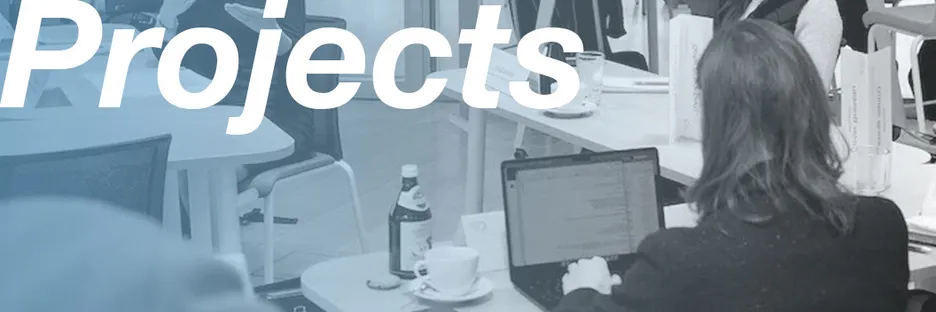
alignAI Doctoral Network
The alignAI Doctoral Network will train 17 doctoral candidates (DCs) to work in the international and highly interdisciplinary field of LLM research and development.
Project Head: Prof. Dr. Urs Gasser
Status: starting May 2025
Digital Sovereignty Series
Over the past year, the conversation around digital sovereignty has evolved significantly, shaped by shifting geopolitical realities, AI governance debates, cybersecurity challenges, and Europe’s pursuit of technological autonomy. The Digital Sovereignty Series brings together policy leaders, industry experts, and researchers to reflect on how priorities have changed and what strategic directions lie ahead.
Project Head: Sofie Schönborn
Status: starting May 2025
EdTech
With the advent of artificial intelligence within educational technologies (AI EdTech), initial case studies reveal significant ethical and legal risks ranging from bias to privacy threats. Decision-makers struggle to manage these risks systematically and holistically, given the lack of best practice guidance and specific legislation. At the Public Policy, Governance, and Innovative Technology Professorship, we address the normative and legal questions that bring child rights, ethical concerns, and potential risks into the equation and foresee challenges to AI EdTech to develop a navigational tool for decision-makers.
Project Head:
Status: ongoing
HEMISPHERES
HEMISPHERES is a collaborative consortium that aims to bring together academic institutions, policymakers, and individual experts from the EU, Latin America, and the Caribbean to address challenges and opportunities in digital policy. By fostering continuous knowledge exchange and creating actionable insights, HEMISPHERES aims to advance innovative policy approaches in support of democratic, inclusive, and safe digital environments globally.
Project Lead: Pablo Gomez Ayerbe
Status: ongoing
Immersive Realities Working Group
The realms of Augmented Reality, Virtual Reality, Mixed Reality, Digital Twins, and related technological advancements are not mere fantasies. Recent applications and other manifestations have the potential to change the realities of people across diverse contexts. Whether in the workplace, public spaces, or even our private lives, these technologies bring new dimensions to our existence. Our cross-disciplinary group delves into the intricacies of these technologies and the ways people interact with them, exploring devices, infrastructure, applications, and use cases that are shaping how we perceive reality. We are examining this dynamic evolution, focusing on experiences and the far-reaching effects these technologies facilitate.
We believe in studying the broader social, political, and legal implications to shape trajectories of immersive technologies and foster their sustainable and human-centric development. It's not just about advancement; it's about paving the way responsibly and for the good of society.
We are joining forces with stakeholders in the immersive technology ecosystem, including public and private organisations as well as user communities and civil society, thereby fostering critical and constructive dialogue and partnerships.
Project Head: Sofie Schönborn
Status: ongoing
International Network on Digital Self-determination
Data is changing how we live and engage with and within our societies and our economies. As our digital footprints grow, how do we re-imagine ourselves in the digital world? How will we be able to determine the data-driven decisions that impact us?
Project Head: Prof. Dr. Urs Gasser, Noha Lea Halim
Status: completed
Quantum Social Lab
The Quantum Social Lab (QSL) is a joint initiative of the Chair for Public Policy, Governance and Innovative Technology and the TUM Think Tank. Co-led by Prof. Urs Gasser, Fabienne Marco and Philip Pfaller, the QSL focuses on the impact of emerging second-generation quantum technologies on society.
Project Head: Prof. Dr. Urs Gasser, Fabienne Marco, Philip Pfaller
Status: ongoing
Trustworthy Tech Challenge
The project aims to understand which practices of tech-corporations, which practices do not "deal with money but with information" as a currency, are considered fair and which aren't. By making progress in that research area, we hope to add to the debate on what fiduciary duties of tech-companies could look like.
Project Head: Prof. Dr. Urs Gasser, Noha Lea Halim
Status: ongoing